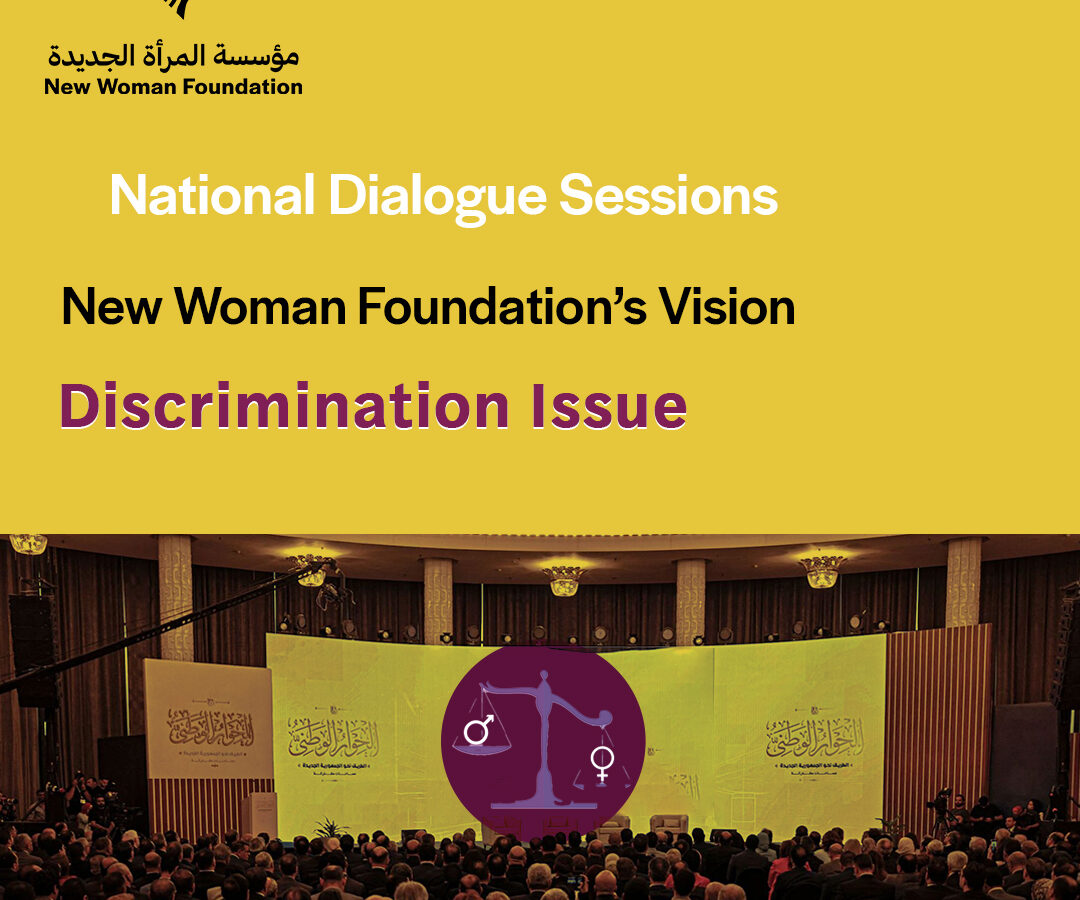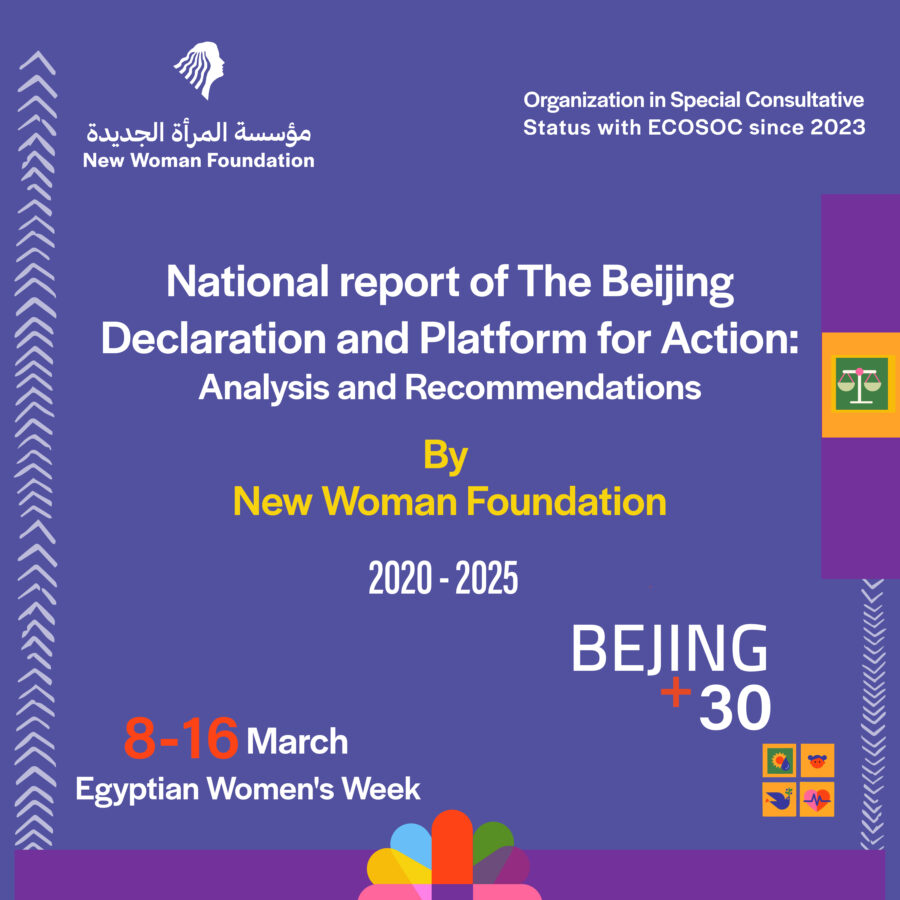- Contact Us
- 0020233382706
- nwrc@nwrcegypt.org
National Dialogue Sessions New Woman Foundation’s Vision about Discrimination Issue

National Dialogue Sessions New Woman Foundation’s Vision about Women’s Right to Guardianship
May 31, 2023
National Dialogue Sessions New Woman Foundation’s Vision about Parliamentary Representation for Women
June 7, 2023The national dialogue session tackled the issue of discrimination, which is a very important issue for Egyptian male and female citizens. Despite the advanced step taken by the constitution of 2014, which stipulated the establishment of a Commission for the Elimination of All Forms of Discrimination (Article 53), however; the past ten years witnessed a stumbling block in issuing the law on the commission over several parliamentary sessions. Hence, the real progress in eliminating discrimination is the issuance of the Discrimination Commission law and its executive regulations as soon as possible to begin its work.
It is important that discussions do not take a limited time trying to invent ‘the wheel’, and search for an “Egyptian” definition of discrimination, because the whole world has agreed to define discrimination through a number of international covenants and charters, which Egypt has ratified, and the constitution stipulates that it is considered part of the Egyptian legal structure (Article 93), that discrimination means any distinction, exclusion or restriction whose effects or purposes include the denial or weakening of the recognition of human rights and fundamental freedoms in the political, economic, social, cultural, civil or any other field of persons or groups who suffer discrimination, or impede their enjoyment of these rights or practicing them.
The principle is that all human beings are born free and equal in dignity and rights, and therefore all human beings are equal before the law and have an equal right to be protected by it against any discrimination. So we have to build on the definition already found in the constitution, which represents a consensus of the Egyptian political powers, “citizens are equal before the law, and they are equal in rights, freedoms, and public duties, without discrimination between them based on religion, creed, gender, origin, race, color, language, disability, social level, political or geographical affiliation, or for any other reason”.
In order for the Commission to have a real role in eliminating discrimination and achieving true equality among all male and female citizens, it is also important for the law to include:
-Stipulating the definition of discrimination as stated in Article 53 of the Constitution, and considering incitement and complicity with it as a crime punishable by law.
-To be an independent body to ensure its impartiality and effectiveness, including its financial independence by allocating the necessary resources for its work as an independent item in the state budget.
– That the government, the judiciary and civil society be represented in its composition, provided that half of those appointed in it from the various agencies are women.
– Dedicate independent prosecution offices to investigate complaints of discrimination submitted to them.
– To have the right to initiate a civil, disciplinary or criminal lawsuit, as the case may be, in the name of and on behalf of the injured party.
– The obligation of the various state agencies to cooperate with them and provide them with the information they need.
– To submit annual reports on its work to the parliament.



